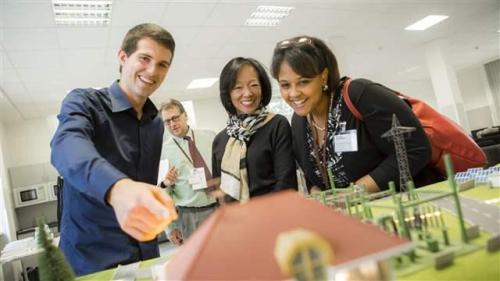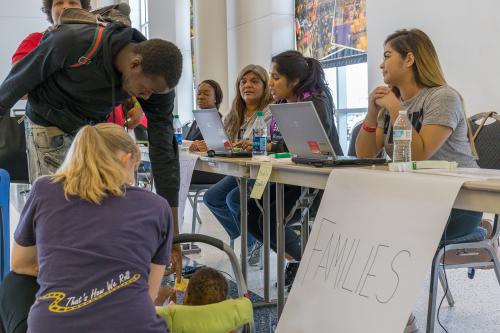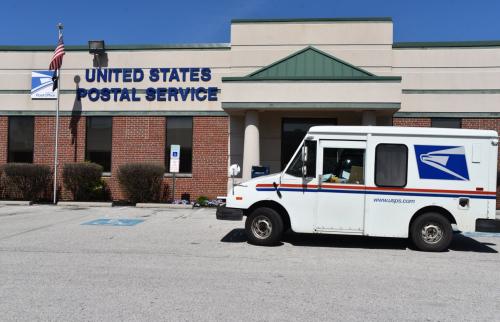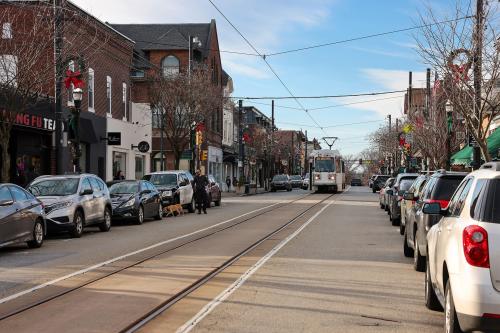When General Electric announced plans to ramp up production at its Louisville Appliances & Lighting plant several years ago, the company and its suppliers faced a significant barrier: finding enough skilled workers to staff their plants and factories
Securing skilled labor is a familiar challenge for employers. Although debate continues over the size and nature of a national skills gap, in the Bluegrass region of Kentucky—a 22-county area stretching from Louisville to Lexington—the problem was particularly acute. Brookings’ 2013 analysis of the regional economy emphasized the area’s poor performance in national rankings of skilled workers, with the gap both inhibiting growth and constraining opportunity for workers.
Luckily for Louisville, Toyota Motor Manufacturing Kentucky Inc. in Georgetown (just outside Lexington) had developed a promising solution several years earlier: a paid apprenticeship program combining coursework on fabrication, electricity, and related topics with practical work experience on the plant floor. High-performing high school graduates enter the Toyota-developed Advanced Manufacturing Technician program, operated in partnership with Bluegrass Community and Technical College, on a path to an associate’s degree. Students also have the option to advance to a four-year engineering program at two area institutions.
The program then extended to several other Lexington-area firms through a consortium, the Kentucky Federation of Advanced Manufacturing Education (KY FAME), and attracted state investment in a new $24 million advanced manufacturing training center.
Witnessing this promising model, GE Appliances and a group of 11 other Louisville manufacturers joined together to bring KY FAME to Louisville. The Louisville chapter, which will operate in partnership with Jefferson Community and Technical College, will closely resemble the Lexington model. The goal is to recruit 22 students in time for the program’s formal launch in the fall of 2015.
KY FAME offers students the opportunity to combine work and learning, enabling real-time application of coursework while they earn wages. “As you’re taking trig, you’re coming to work at ‘nth/works’ and putting it to work the next day at our place,” explained Tom Hudson, president and CEO of nth/works, a Louisville precision-metals-forming company.
Toyota, GE, and their partner manufacturers are proving that employers can drive solutions to the skills gap. Firms can work collectively, rather than individually, to develop programs at scale that build a pipeline of young workers ready to enter careers in manufacturing and other sectors. Doing so can also build the path to more competitive, inclusive growth, as we have learned from a trip organized by Brookings and JPMorgan Chase to study Germany’s approach to innovation and dual learning.
The rapid uptake of KY FAME also demonstrates the power of regional collaboration. GE and other Louisville firms learned about the Toyota program through their participation in BEAM, a new mega-regional economic collaboration led by Mayor Greg Fischer of Louisville and Mayor Jim Gray of Lexington to make the region a global hub of advanced manufacturing. BEAM brought leaders together from across central Kentucky to find shared goals and strategies, and the gathering sparked a natural collaboration among the employers.
New chapters of KY FAME are launching in two other Kentucky regions. In January, Governor Steve Beshear announced an effort to take KY FAME statewide. Good local innovations can spread fast.
The initiative featured here is related to work supported by the Brookings-Rockefeller Project on State and Metropolitan Innovation. Brookings recognizes that the value it provides is in its absolute commitment to quality, independence, and impact. Activities supported by its donors reflect this commitment and the analysis and recommendations are solely determined by the scholar.
The Brookings Institution is committed to quality, independence, and impact.
We are supported by a diverse array of funders. In line with our values and policies, each Brookings publication represents the sole views of its author(s).










Commentary
In Kentucky, manufacturers partner to bridge the skills gap
March 4, 2015